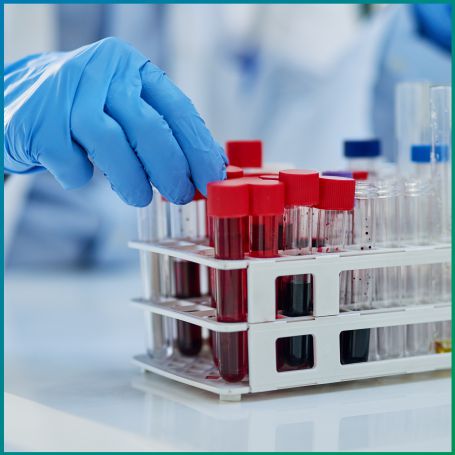
The Eosinophil-CSF test involves analyzing cerebrospinal fluid to determine the presence and concentration of eosinophils.


CSF is a clear, colorless fluid that surrounds the brain and spinal cord, providing cushioning, nutrients, and waste removal. Under normal circumstances, eosinophils are not present in significant numbers in the CSF. An increase in eosinophil count can indicate specific pathological conditions. The Eosinophil-CSF test pune is primarily indicated in cases where a patient presents with neurological symptoms such as headaches, seizures, altered mental status, or signs of meningitis. It may be utilized to investigate conditions such as:
A] Parasitic Infections: Some parasites can affect the CNS, leading to eosinophilic meningoencephalitis.
B] Allergic Reactions: Conditions like drug reactions or hypersensitivity can elevate eosinophil levels in the CSF..
C] Autoimmune Disorders: Eosinophils can be involved in inflammatory processes associated with various autoimmune diseases.
A] Sample Collection - The test begins with a lumbar puncture (spinal tap), where a needle is inserted into the lower back to collect CSF. The procedure is typically performed in a hospital or clinical setting by trained medical personnel. Patients may be positioned on their side or sitting upright to facilitate the collection.
B] Laboratory Analysis - Once the CSF sample is obtained, it is sent to a laboratory for analysis. The laboratory staff will perform the following steps:
1] Cytological Examination: The CSF is examined under a microscope to assess cell types, including eosinophils.
2] Staining Techniques: Stains like Wright’s stain or Giemsa stain are often used to identify eosinophils based on their distinctive granules and morphology.
3] Quantification: The number of eosinophils is counted and expressed as a percentage of the total cell count or as absolute counts per microliter of CSF.
A] Normal Values - In healthy individuals, the CSF should contain very few, if any, eosinophils. Typically, a count of fewer than 5 eosinophils per microliter of CSF is considered normal.
B] Elevated Eosinophil Counts - An elevated eosinophil count in CSF is often indicative of various pathological conditions:
1] Greater than 5 eosinophils per microliter: May suggest an eosinophilic meningitis or encephalitis.
2] Greater than 10 eosinophils per microliter: Typically raises suspicion for specific infections, allergic reactions, or autoimmune processes.
Diagnopein Diagnostic Centre in Pune offer comprehensive, accurate, and timely diagnostic services, including the Eosinophil-CSF test pune. With our NABL-accredited labs, cutting-edge technology, and skilled technicians, you can be assured of reliable results every time. Get your results quickly, especially when time is crucial in detecting severe infections.
Competitive pricing without compromising on quality. Our team of experienced professionals ensures the test is conducted smoothly with minimal discomfort. We provide not just the Eosinophil-CSF test results but insights into your health condition, helping you and your doctor make informed decisions about treatment. For more information call us at +91 9204 108108.
The Eosinophil-CSF test involves a lumbar puncture (spinal tap) to collect CSF from the lower back. The fluid is then analyzed in a laboratory to count and identify eosinophils.
This test is performed when a patient presents with neurological symptoms, such as headaches, seizures, or altered mental status, to investigate potential underlying causes like eosinophilic meningitis or allergic reactions.
While generally safe, lumbar puncture can carry risks such as headaches, bleeding, infection, or nerve damage. However, serious complications are rare.
Elevated eosinophil counts may suggest conditions such as eosinophilic meningitis, allergic reactions, or autoimmune disorders. Counts greater than 10 eosinophils per microliter are often clinically significant.